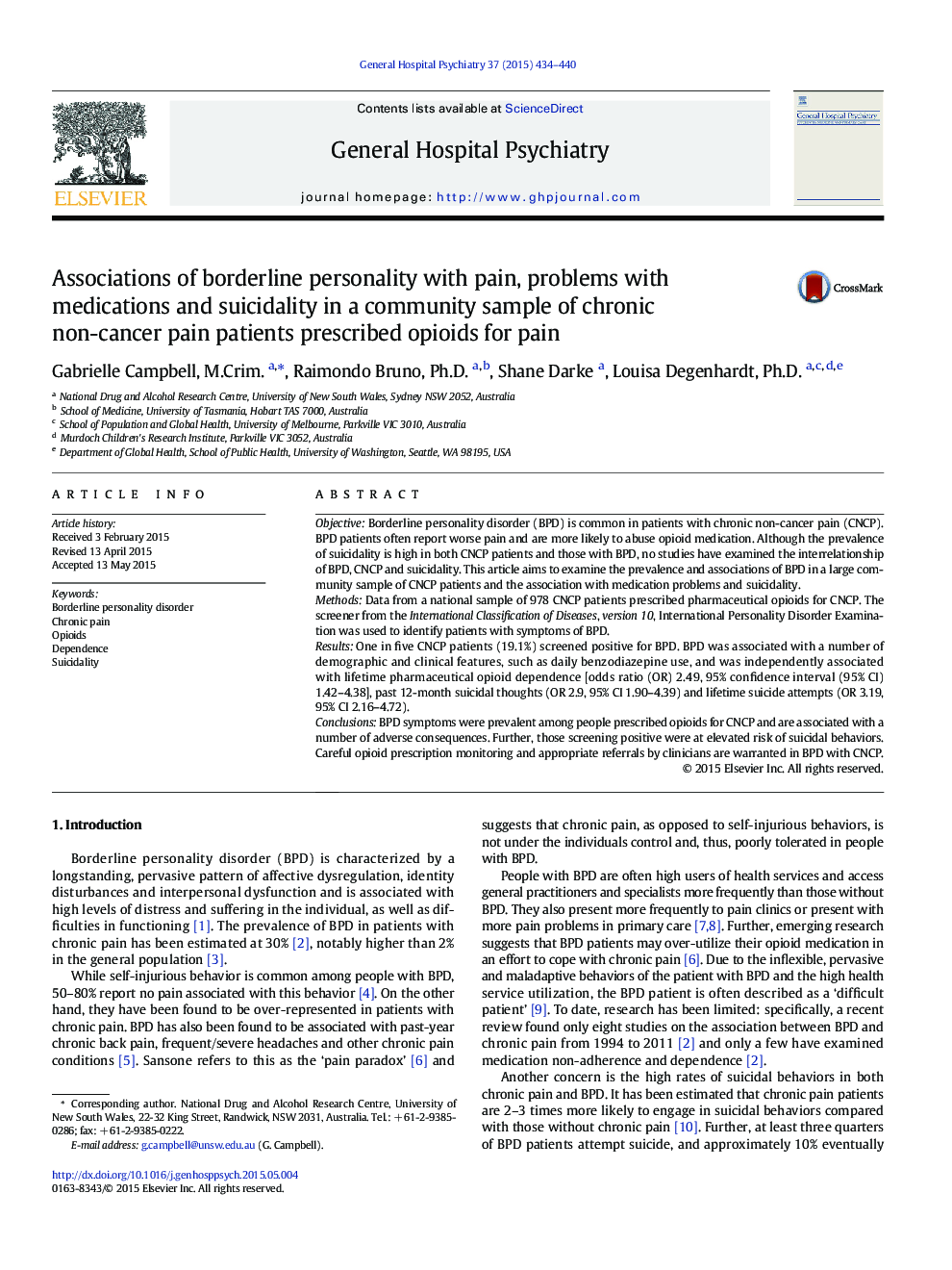| Article ID | Journal | Published Year | Pages | File Type |
|---|---|---|---|---|
| 6081658 | General Hospital Psychiatry | 2015 | 7 Pages |
ObjectiveBorderline personality disorder (BPD) is common in patients with chronic non-cancer pain (CNCP). BPD patients often report worse pain and are more likely to abuse opioid medication. Although the prevalence of suicidality is high in both CNCP patients and those with BPD, no studies have examined the interrelationship of BPD, CNCP and suicidality. This article aims to examine the prevalence and associations of BPD in a large community sample of CNCP patients and the association with medication problems and suicidality.MethodsData from a national sample of 978 CNCP patients prescribed pharmaceutical opioids for CNCP. The screener from the International Classification of Diseases, version 10, International Personality Disorder Examination was used to identify patients with symptoms of BPD.ResultsOne in five CNCP patients (19.1%) screened positive for BPD. BPD was associated with a number of demographic and clinical features, such as daily benzodiazepine use, and was independently associated with lifetime pharmaceutical opioid dependence [odds ratio (OR) 2.49, 95% confidence interval (95% CI) 1.42-4.38], past 12-month suicidal thoughts (OR 2.9, 95% CI 1.90-4.39) and lifetime suicide attempts (OR 3.19, 95% CI 2.16-4.72).ConclusionsBPD symptoms were prevalent among people prescribed opioids for CNCP and are associated with a number of adverse consequences. Further, those screening positive were at elevated risk of suicidal behaviors. Careful opioid prescription monitoring and appropriate referrals by clinicians are warranted in BPD with CNCP.
